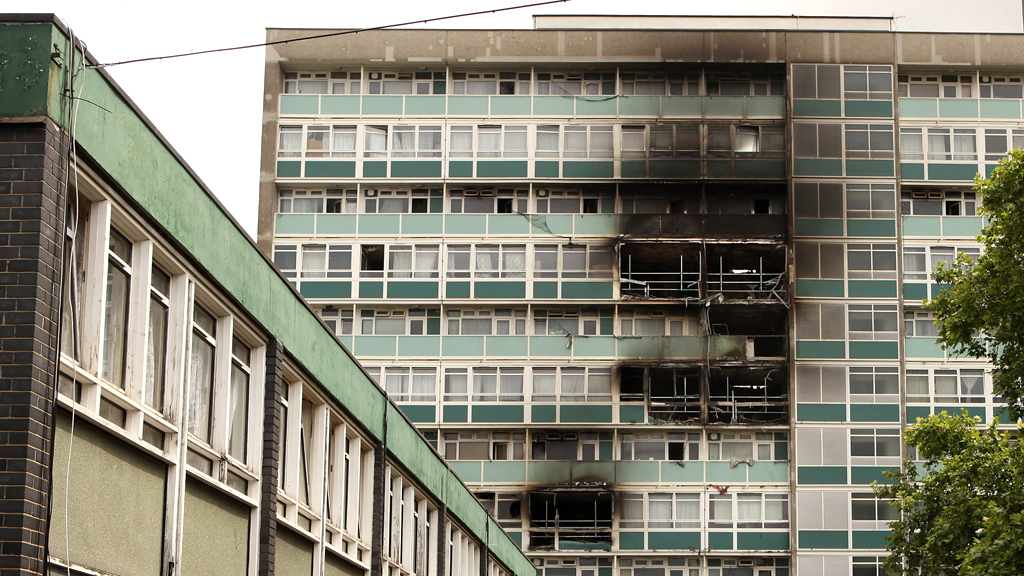Lakanal House fire deaths preventable, says jury
An inquest into six deaths after a fire at the south London tower block finds “numerous opportunities” for fire safety checks were missed, and that some victims were wrongly advised to stay put.

The jury found fault with the fire resistance at Lakanal House, the response of emergency services and the lack of previous fire safety checks.
Narrative verdicts into the six deaths, which included a three-week old baby, concluded that the fire could have been prevented by a proper fire safety check. Southwark Council was responsible for a “serious failure” over materials used in the flat of 31-year-old Catherine Hickman (one of the victims) which were below the required standard for fire safety, the jury found.
The jury also blamed advice given by 999 emergency operators, who advised some people to stay put, rather than flee, and who jurors said were slow to respond to the crisis. Dayana Francisquini, 26, who died along with her two children, could have escaped without assistance from rescuers, the jurors found.
The response of firefighters was also criticised: the jury said they concentrated on putting out flames, rather than rescuing those trapped in the flames.
A unanimous narrative verdict was returned at the “super inquest” into the deaths at Lambeth Town Hall on Thursday. Judge Frances Kirkham, acting as coroner, will give her recommendations in coming days.
Six deaths
The 2009 fire began in the afternoon of 3 July after an electrical fault in a television, and quickly spread through the building.
Three members of one family died in the fire: Dayana Francisquini, 26, and her children, six-year-old Thais, and Felipe, three.
Helen Udoaka, 34, her three-week-old daughter Michelle and 31-year-old Catherine Hickman were also killed. They all lived on the 11th floor of the building.
The “super inquest” into the six deaths began in January and has heard evidence including transcripts and audio clips of 999 calls that were made by those trapped in the fire.
Questions had previously been raised about why residents were given conflicting information about whether to stay or leave the flats.
An investigation by the Crown Prosecution Service found that Southwark Council were aware that the tower block posed a fire risk and did not try to make the building safe. But the council escaped a manslaughter charge in May 2012. The Crown Prosecution Service ruled that there was insufficient evidence that the council had breached its duty at a senior management level.
‘I lost my entire family’
The 10-week-inquest heard a recording of a phone call made by one of the victims, Hickman, who described fire consuming her flat at Lakanal House and fell unconscious while talking to a phone operator.
Both Francisquini and Udoaka’s partners spoke of their devastation at the fire deaths while giving evidence to the inquest in January.
Rafael Cervi, Francisquini’s husband, told the jury: “I lost my entire family, my wife and a couple of kids. Everything that I built, everything that I dreamed of was over in three hours.”
He told of how he had rung his wife 10 times, trying to reassure her. He also called 999, and alerted her father, who lived within walking distance of the flat.
Mrs Udoaka’s husband Mbet also described the last conversation that he had with his wife.
“The last words she said to me were that the smoke was too much, she couldn’t bear it any more, Michelle our daughter was going to heaven,” he told the inquest.
“She said if I didn’t see her again she would be going to heaven.”
Around 100 families were made homeless after the fire destroyed their flats.
-
Latest news
-
Fans react to football clubs increasing season ticket prices4m

-
‘We’re still a long way from justice’, says infected blood scandal victim5m

-
Infected blood scandal: Victims set to receive billions of government compensation7m

-
Iran’s president and foreign minister missing after helicopter crash3m

-
Yungblud launches his own affordable music festival5m

-




